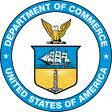United States Department of Commerce

United States Department of Commerce: Staff Publications
Date of this Version
2012
Citation
Nature Communications 3:851; DOI: 10.1038/ncomms1845
Abstract
Illegal, Unreported and Unregulated fishing has had a major role in the overexploitation of global fish populations. In response, international regulations have been imposed and many fisheries have been ‘eco-certified’ by consumer organizations, but methods for independent control of catch certificates and eco-labels are urgently needed. Here we show that, by using gene-associated single nucleotide polymorphisms, individual marine fish can be assigned back to population of origin with unprecedented high levels of precision. By applying high differentiation single nucleotide polymorphism assays, in four commercial marine fish, on a pan-European scale, we find 93–100% of individuals could be correctly assigned to origin in policy-driven case studies. We show how case-targeted single nucleotide polymorphism assays can be created and forensically validated, using a centrally maintained and publicly available database. Our results demonstrate how application of gene-associated markers will likely revolutionize origin assignment and become highly valuable tools for fighting illegal fishing and mislabelling worldwide.

